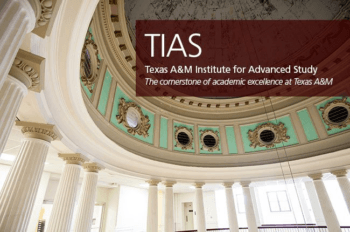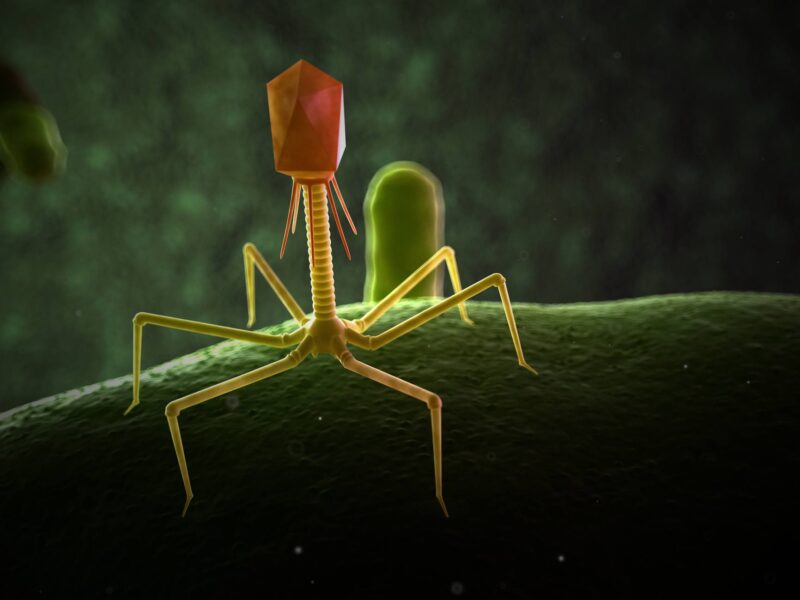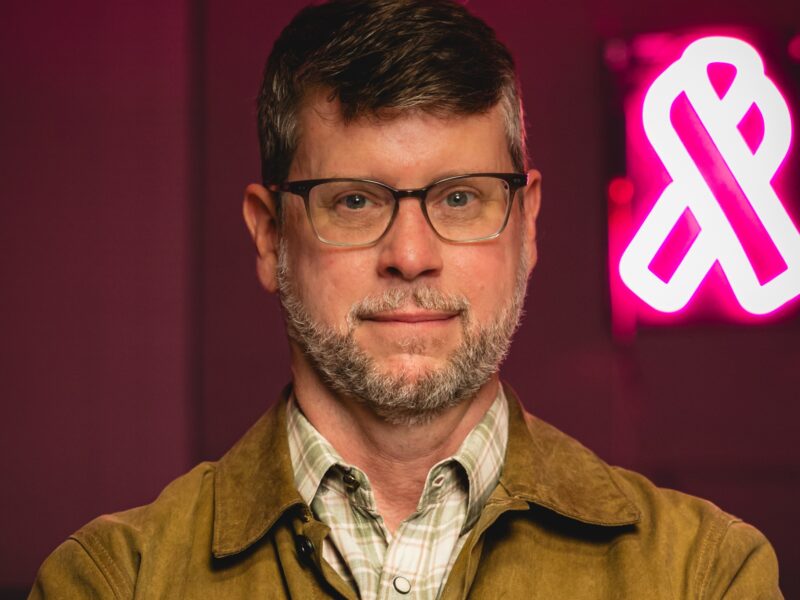TIAS Announces 2015-16 Faculty Fellows
 Texas A&M University Institute for Advanced Study (TIAS) announced its Faculty Fellows for the 2015-16 academic year. TIAS will welcome 13 new Faculty Fellows, each of whom is recognized as a trailblazing scholar in chemistry, computer science, economics, engineering, genetics, law, literature or physics.
Texas A&M University Institute for Advanced Study (TIAS) announced its Faculty Fellows for the 2015-16 academic year. TIAS will welcome 13 new Faculty Fellows, each of whom is recognized as a trailblazing scholar in chemistry, computer science, economics, engineering, genetics, law, literature or physics.
Among the new Faculty Fellows are nine members of the nation’s National Academies, a Fellow of the Royal Society of Canada, a member of Germany’s National Academy of Sciences, a nominee for the Pulitzer Prize and a recipient of France’s Palmes Académiques.
Each Faculty Fellow will partner with one or more of the departments offering graduate degreeshoused in Texas A&M’s 16 colleges or schools, or the Texas A&M Health Science Center. Additional resources provide Texas A&M fellowships for graduate students, as well as funding to support visiting graduate students and post-doctoral researchers affiliated with the Faculty Fellows.
Chancellor John Sharp of The Texas A&M University System said, “Once again, TIAS has assembled an impressive class of Faculty Fellows – the institute’s largest so far – that will have a significant impact on our faculty-researchers and our students. Thisis another reminder of how Texas A&M continues to enjoy a substantial return on our investment in TIAS.” Chancellor Sharp is a long-time champion of the institute and provided the funds to launch TIAS in 2010.
“The Institute’s impact on research and education at Texas A&M is incalculable,” said Texas A&M President Michael K. Young. “The 35 scholars from around the world who have come here as TIAS Faculty Fellows in the last four years have actively engaged in the transformative intellectual experience we seek to provide all of our students, helped us take our land-grant mission of addressing today’s most pressing, grand, global challenges to the next level, and elevated the overall culture of excellence for which Texas A&M is known.”
Each year, TIAS selects its Faculty Fellows from among top scholars who have distinguished themselves through outstanding professional accomplishments or significant recognition, including two Nobel laureates, a Wolf Prize recipient, a recipient of the Hubble Medal in Literature for Lifetime Achievement, a recipient of the National Medal of Science, and an awardee of the National Medal of Technology and Innovation.
TIAS Founding Director John L. Junkins said, “Brilliant scholars are the foundation on which great universities are built. By fostering collaborations between the world’s leading scholars, the university’s outstanding faculty and its top-notch students, TIAS advances the university’s research enterprise and deepens its educational experiences.”
Texas A&M Vice President for Research Glen A. Laine said, “When the institute opened four years ago, the consensus was that it would take many years for the Faculty Fellows’ efforts to show tangible results. The consensus was clearly wrong. The institute has performed at a stellar level from the start and again has topped itself by attracting a large and impressive class of Faculty Fellows for 2015-16.”
The institute will induct its Faculty Fellows Class of 2015-16 at its annual gala in early 2016:
- David Arnett, Regents Professor of Astrophysics, University of Arizona – A pioneer in the scientific study of exploding stars, Arnett is a member of the National Academy of Sciences, the American Academy of Arts and Sciences and the American Association for the Advancement of Science, and a fellow of the American Physical Society and the American Association for the Advancement of Science. Arnett will collaborate with faculty-researchers in the Department of Physics and Astronomy in the College of Science.
- John T. Brosnan, University Research Professor of Biochemistry, Memorial University of Newfoundland, Canada – Known for his groundbreaking research into kidney and inter-organ metabolism of amino acids and one-carbon units, Brosnan is a fellow of the Royal Society of Canada and the Canadian Academy of Health Sciences, and a member of the Royal Society of Canada. Brosnan will collaborate with faculty-researchers and graduate students from the Departments of Animal Science, Poultry Science, and Nutrition and Food Sciences in the College of Agriculture and Life Sciences; the Department of Veterinary Physiology and Pharmacology in the College of Veterinary Medicine & Biomedical Sciences; and the Texas A&M Health Science Center.
- Robert A. Calderbank, Charles Sydnor Professor of Computer Science and director of the Information Futures Initiative, Duke University – The co-inventor of space-time codes, a key technology behind the Wireless Revolution, Calderbank is a member of the National Academy of Engineering and a fellow of the American Mathematical Society, the American Association for the Advancement of Science and the Institute of Electrical and Electronics Engineers. Calderbank will collaborate on interdisciplinary research on big data with faculty and graduate students from the Department of Electrical and Computer Engineering in the Dwight Look College of Engineering; the Department of Sociology in the College of Liberal Arts; the Department of Mathematics in the College of Science; and the College of Medicine.
- Richard Delgado, John J. Sparkman Chair of Law, The University of Alabama School of Law – Widely acknowledged as a founder of critical race theory, Delgado has received six Gustavus Myers Awards for outstanding books on human rights in North America, was nominated for a Pulitzer Prize, and is among the most cited legal scholars in the United States with more than 5,000 citations. Delgado will collaborate with faculty-scholars and law students at the Texas A&M School of Law in Fort Worth. Additionally, he will interact with faculty and graduate students in the Colleges of Education and Liberal Arts on the main campus.
- Richard A. Gibbs, professor and holder of the Wofford Cain Chair in Molecular & Human Genetics and director of the Human Genome Sequencing Center, Baylor College of Medicine – Founder of the Human Genome Sequencing Center, one of the five worldwide sites selected to undertake and complete the Human Genome Project, Gibbs is best known for his work in whole genome sequencing for the discovery of genetic diseases. He is a member of the Institute of Medicine, as well as the Texas Academy of Medicine, Engineering and Science. Gibbs will collaborate with faculty-researchers and graduate students in the College of Medicine.
- J. Karl Hedrick, James Marshall Wells Academic Chair and professor of mechanical engineering, University of California, Berkeley – Recognized for his contributions to the development of automated transportation systems, Hedrick is a member of the National Academy of Engineering. He is a fellow of the American Society of Mechanical Engineers and received ASME’s Rufus Oldenburger Medal, which recognizes significant contributions and outstanding achievements in the field of automatic control. Hedrick will collaborate with faculty-researchers and graduate students from the Departments of Mechanical Engineering and Aerospace Engineering in the Dwight Look College of Engineering and with researchers in the Texas A&M Engineering Experiment Station.
- Richard H. Holm, Higgins Emeritus Professor of Chemistry, Harvard University – Acknowledged as a founder of bioinorganic chemistry, specifically for his approach to modeling active sites of enzymes, Holm is a member of National Academy of Sciences and the American Academy of Arts and Sciences. He has received the National Academy of Sciences Award in Chemical Sciences, the American Chemical Society Award in Inorganic and Bioinorganic Chemistry, and the F.A. Cotton Medal for Excellence in Chemical Research from the American Chemical Society. Holm will collaborate with faculty-researchers and graduate students from the Department of Chemistry in the College of Science.
- Michael D. King, senior research scientist, Laboratory for Atmospheric and Space Physics, University of Colorado – Known for his leadership on satellite projects that developed the ability of the U.S. space program to monitor Earth’s atmosphere, oceans and land, King is a member of the National Academy of Engineering and a fellow of the American Geophysical Union, the Institute of Electrical and Electronics Engineers and the American Meteorological Society. King will collaborate with faculty-researchers and graduate students in the Department of Atmospheric Sciences in the College of Geosciences.
- Stephen Polasky, Regents Professor and Fesler-Lampert Professor of Ecological/Environmental Economics, University of Minnesota – Widely recognized as a leading economist in biodiversity and ecology, Polasky is member of the National Academy of Sciences and the American Academy of Arts and Sciences. He is a fellow of the Association of Environmental and Resource Economics and the American Association for the Advancement of Science. Polasky will collaborate with faculty-researchers and graduate students from the Department of Agricultural Economics in the College of Agriculture and Life Sciences and the Department of Economics in the College of Liberal Arts.
- John A. Rogers, Swanlund Chair Professor of Materials Science and Engineering, University of Illinois at Urbana-Champaign – A researcher who seeks to understand and exploit characteristics of polymers, liquid crystals and biological tissues, Rogers is a member of the National Academy of Engineering, the National Academy of Sciences and the American Academy of Arts and Sciences. He will collaborate with faculty-researchers and graduate students from the Departments of Mechanical Engineering, Biomedical Engineering and Electrical And Computer Engineering in the Dwight Look College of Engineering and the Department of Materials Science and Engineering in the colleges of Science and Engineering.
- Manfred Schartl, professor and head, Department of Physiological Chemistry, University of Wurzburg, Germany – Known for explaining the molecular-genetic basis of cancer formation using non-mammalian models and for translating basic evolutionary research into discoveries with clear and direct impacts on human health, Schartl is a member of the National Academy of Sciences of Germany and a recipient of the Heisenberg Award from the German Research Foundation. He will collaborate with faculty-researchers in the Department of Biology in the College of Science, the Health Science Center and the College of Veterinary Medicine & Biomedical Sciences.
- Kumares C. Sinha, Edgar B. and Hedwig M. Olson Distinguished Professor of Civil Engineering, Purdue University – Recognized for his development of an integrated approach to managing highway systems and groundbreaking research on pavement and bridge performance, life cycle costing, and road safety, Sinha is a member of the National Academy of Engineering, an honorary member of the American Society of Civil Engineers. He will collaborate with faculty-researchers and students with the Zachry Department of Civil Engineering in the Dwight Look College of Engineering and the A&M System’s Texas A&M Transportation Institute.
- Susan R. Suleiman, C. Douglas Dillon Professor of the Civilization of France, professor of comparative literature, Harvard University – Considered the leading U.S. scholar of 20th century French literature, Suleiman ranks among the world’s top scholars in her field, as well as a leading international scholar of gender and Holocaust studies. She received recognitionfrom the French government as an Officer of the Order of Academic Palms (Palmes Académiques), and is a former Guggenheim Fellow. Suleiman will collaborate with faculty-scholars and graduate students in the departments of International Studies, English and History, as well as the Gender and Ethnic Studies Program, in the College of Liberal Arts.
Media Contact: Rusty Cawley, Texas A&M University.





